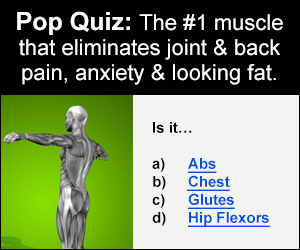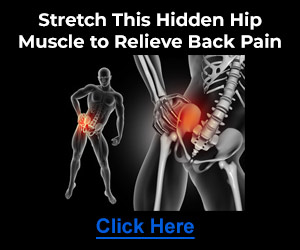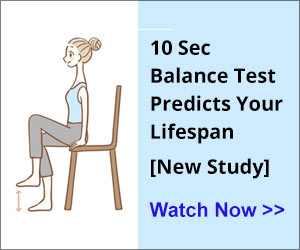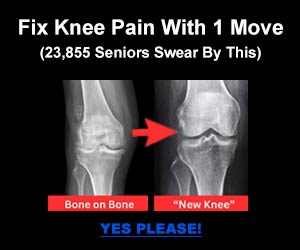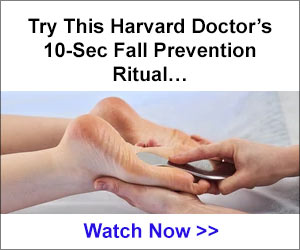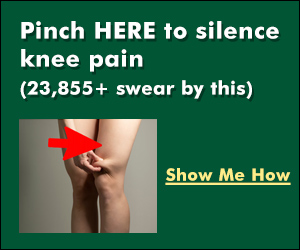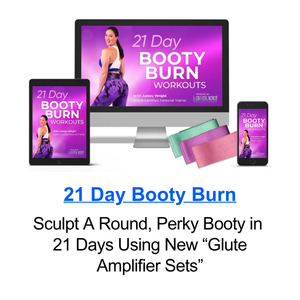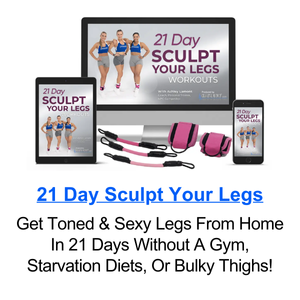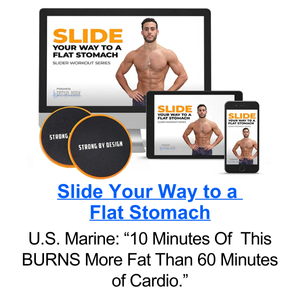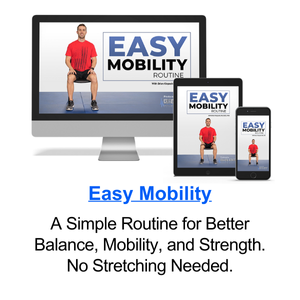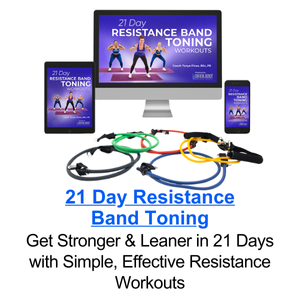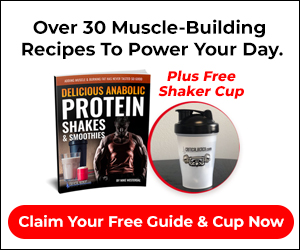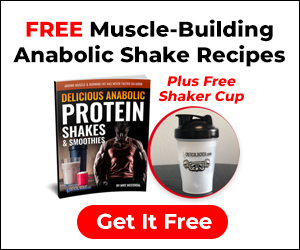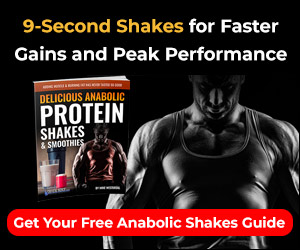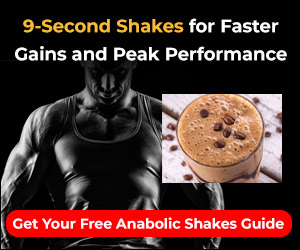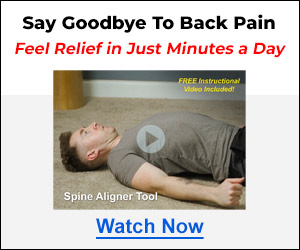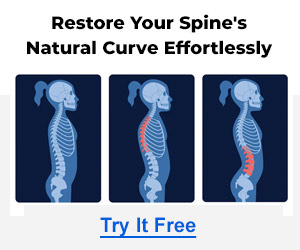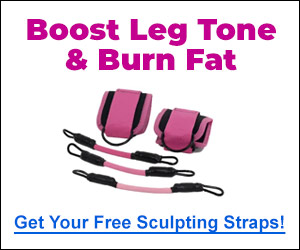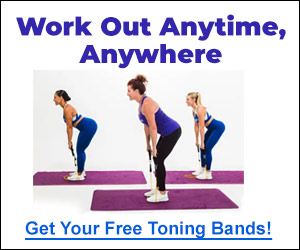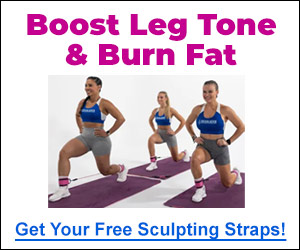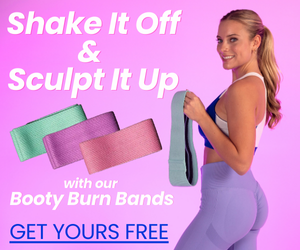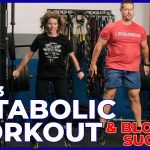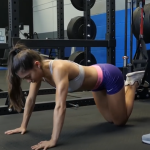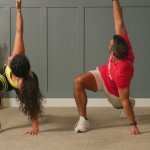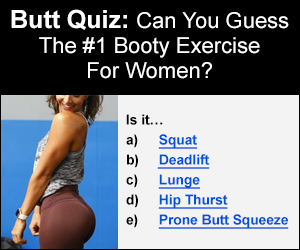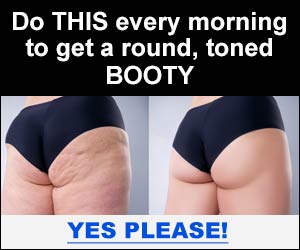[spp-player url=”http://traffic.libsyn.com/strongbydesigncb/CARBS_-_Public_Enemy_1.mp3″]
On this episode of Strong By Design, Coach Chris sits down with nutrition and holistic health professional, Tonya Fines. They discuss everything you need to know about carbs. Also, stay tuned to hear Tonya’s top picks for best carbs to eat.
Want the “Why Stretching Won’t Make You Flexible” Report for free?
Then go here! Or text “Stretch” to 345345
“All your little steps add up to huge improvements.”
-Tonya Fines

Subscribe to iTunes Love the podcast? Leave a review on iTunes!
What do you want to hear from the Critical Bench Podcast?
Time Stamps:
2:40 Are carbs bad for you?
3:45 Tonya’s top 5 best carbs
5:35 Why do we need carbs
9:25 What should your nutritional intake look like?
14:55 Finding team to do prep
17:18 Are you cutting your carbs but not seeing the scale move?
19:20 Complex carbs vs Simple carbs
21:40 Creating realistic weight loss goals
29:10 Do you love pasta? This is how you can still have it
[spp-playlist]
Resources
Connect with Tonya
Connect with Critical Bench:
Transcripts
Tonya: [00:00:00] It is about convenience and efficiency as you know as a busy mom we want to get the kids fed and keep on going. So it can become very easy to fall into that trap of picking quick highly processed, fast things because there’s no preparation involved.
Chris: [00:00:15] We Believe that you are strong by design and you are made in God’s image to have a strong body mind and spirit. Hi, my name is Chris Wilson and you’re listening to the number 1 strength and health authority podcast in the world. So let’s get ready to Unlock your potential and transform your life with today’s expert.
Chris: [00:00:47] Hey this is Coach Chris with the Strong by Design Podcast Show. And I’m really super excited about today’s topic. We are talking about carbs, public enemy number one or are they? Today I am sitting across from Tonya Fines. She is a holistic health practitioner and nutrition specialist and really what that means is she knows a lot more than most people when it comes to your health and your nutritional health. And so welcome Tonya.
Tonya: [00:01:22] Thank you! Happy to be here.
Chris: [00:01:22] Yes. It’s Great to have you here. So I want to dive right in we have obviously a list of topics we want to go over today we want to cover. Number one just a little bit of background really quickly like if you could describe yourself in like four or five sentences how would you do that?
Tonya: [00:01:43] Well I’ve been in this industry my whole life. Started, I was a high school teacher. Then started my own company in Canada and moved overseas to New Zealand for a while. Now I’m here in Florida and this is all I’ve done just work in this industry of fitness wellness. You know nutrition and you know holistic health and all that.
Chris: [00:02:02] Yeah. Yeah. Obviously, you’re the perfect person to have. So you know I would say carbs have gotten I mean there’s no shortage of information on carbs carbohydrates. And there’s still even to this day for most people or the average person a lot of confusion when it comes to healthy carbs. Should I even avoid them at all together. Simple vs complex, morning, noon, or night. What’s the story? So number one is I guess you know what would you say if someone asked you I’m sure you get this question a lot. Are carbs bad for me? Are they really should I not eat them? Like what would be your answer?
Tonya: [00:02:49] My Answer would be no. They’re not bad for you. But that doesn’t you know there’s a lot more to it. But byline is it’s not bad for you because even too much of the really good thing can be not that great for you. Just the information that we have. And you know how much are you eating what carbs are you eating. So there’s a lot that goes into answering but ultimately no, they are not bad for you. We do need them on our diet.
Chris: [00:03:12] Right. Yeah. Because what happens is people start to make carbs. It was a huge umbrella term, the bad guy. And all of a sudden you’re omitting like fruits and vegetables and certain you know fiber choices. So give us maybe a quick list. What if you just named five really good carbs. Most people you know who you know obviously they might have their own individual needs or issues there but that the average person, what would be five carbs choices.
Tonya: [00:03:48] OK So sweet potatoes. I mean they taste great they’re sweet but they are complex carbs. It’s a great carbs especially if you are a very active person. Whole grains, oats that has the fiber that also has some really good oils and that we need you know our brain needs these things. Whole grain, whole grain choices as far as wraps and bread and things like nuts and seeds. And when you look at a slice of bread and if it looks rough. That’s a great carb choice. There’s a lot of fiber. There’s a lot of stuff in there.
Chris: [00:04:20] Like how about the sprouted that becoming increasingly popular for good reason because it’s a lot more nutritional value.
Tonya: [00:04:29] There’s a lot more value and it brings a lot of other things. I mean carbs aren’t just about sugar. There’s a lot going on in carbs that our body as need.
Chris: [00:04:39] What about a few vegetables?
Tonya: [00:04:41] You’re always great to go with green. You know when something’s dark and green. It’s got a lot of fiber. It does have carbs okay. And fruits and vegetables do have sugar. You can’t avoid it. It’s a sugar but it’s not like eating white table sugar. Much different.
Chris: [00:04:52] No, much different. Yeah! Because we were a big believer in my household. I’ve a couple of young children and I know you have some children of your own. And I’m sure fruits were kind of commonplace in their diet and I always feel good. You’re making your kids a smoothie. Which is loaded with spinach and put in your banana and your strawberries, blueberries and all this stuff. And yeah sure. It’s got a lot of carbohydrates. Much rather than having that than you know fruit roll up.
Tonya: [00:05:25] Exactly.
Chris: [00:05:27] So why do we really need carbohydrates? I mean it sounds like an easy silly question.
Tonya: [00:05:37] Well the short answer is, we need them for energy. It’s actually the quickest fastest source of fuel that our body goes to when it needs the energy to do things. To be active to move. It doesn’t mean that your body can’t use other things for energy. But it’s the primary sources. The first place it’s going to go to draw energy. To get you through something. To help you go about your day. That’s the short simple answer.
Chris: [00:06:01] Obviously for super active people. You know it just becomes increasingly important that they have like those go to carbs.
Tonya: [00:06:10] They need the fuel. If you think of a marathon runner right? A marathon runner doesn’t have fuel to run. They’re not going to be able to run very far. So the whole point of anything with your nutrition is putting in what you need to do what is should gonna be doing.
Chris: [00:06:27] And it seems like the first place that people try cutting when they want to lose weight. They immediately start looking at what their carbohydrate intake is and in some cases probably a lot of cases. It’s smart. That is the first place I would recommend most people look rather than cutting fats. Well, that’s another topic for another day maybe. But really they should. And it really comes down to the types of carbohydrates. That the process or artificial carbs. The box items. The stuff that can sit on a shelf for three months or for a year without going bad. Those are the ones that should be removed.
Tonya: [00:07:09] Right! It’s not so much that carbs themselves are an evil thing. It’s which ones are you choosing. And it’s the same with I mean we can take anything. Talk about protein sources and fat sources so over time low carbs today. So carbs in of themselves are not evil or bad. But they are definitely smarter, wiser, better, healthier options to choose from. And it’s easy to consume a lot of carbs today. Because let’s face it, people are busy today. Not a lot of families have that luxury of sitting down and having a one hour meal every single evening. So it is about convenience and efficiency as well. You know as a busy mom you want to get the kids fed and then keep on going. So it can become very easy to fall into that trap of picking quick highly processed fast things. Because there’s no preparation involved. But what we can do is take a little time outside and at the end of the day on a Sunday. Just do a little bit of prep so that some healthier smarter choices there that you know. My kids are older now. They can just grab stuff and go.
Chris: [00:08:13] And that’s yes, I mean that’s usually like my number one thing when someone has asked me in the past about weight loss. What’s three quick things I can do. Number one is just prepare a little bit for yourself. Like you said on a Sunday or on a particular day of the week. Where you can do some bulk cooking or bulk snack making. Whatever it is. Have your nuts and put some stuff together in the container that are just ready to go. Because ultimately you’re healthy fats become a great replacement for some of these go to quick carbs fixes. If you’re having your almonds or your cashews or some of these other things. That fall into that category seeds and things like that. That’ll satisfy your hunger even better. And still provide energy and stuff long term. So there is one question here you have about like your daily intake and nutritional intake. What kind of advice there can you give?
Tonya: [00:09:25] Well my advice would be I mean it’s different for everybody. There isn’t a one-stop shop that fits everybody. Not one size fits all. So you have to take into account. What is your day look like? Are you largely got a sedentary jobs. Are you a very active person and you know all that has to be considered. So really you need to consume. I like to track my food. I go out and have been doing that when I was competing and it was very important. I just found a good habit to get into just to be able to monitor and see you know what I was putting it in and how much. Definitely when I was in those competing days I was able to consume more. Higher volume of carbs because I was burning it off. Now once I get out of that density obviously I backed off of that. I still eat carbs but I’m not eating you know hundreds of grams of them a day. Because it’s just, it’ll sit there. So as far as what’s recommended. It is going to depend on the person. It’s gonna depend on their lifestyle. Their activity level. And obviously some choices are going to feel better with others. If we combine you know a food or a meal that has a really great balance of carbs, proteins and fats. That person’s going to get fit. You know a healthy option. They’re going to be able to sustain like through, you know that’s satiety. It’s going to be longer throughout the days. That need to snack and grab something fast that isn’t there. Because the minute you start to get hungry, you’re body is going to want to get something quick. It knows it needs food. Right?
Chris: [00:10:59] The loading of carbs throughout the day. Are you the type of person that would say to the average person. Go a little bit more carbs heavy maybe earlier in the day. And maybe around activity before certainly after. Immediately after activity or replenish and then kind of dial back carbohydrates or take later on the day.
Tonya: [00:11:26] In the evening which can be tricky because of a lot of us in the evenings that days over. And we’re sitting in maybe taking some time out. Reading the kids stories. Watch TV and we start to snack. So what are the quick snack choices right?
Chris: [00:11:40] But if the snacks are decent. Even if they have carbs. You know when I say decent I guess I mean good for you stuff. Like maybe it’s an apple with like peanut butter. Right. That’s okay. It has fats. Because I think people run from carbs prior to going to bed. Like, oh I really shouldn’t do this right now. But, I’ve also talked with people who compete. Who are really into their physique. And they’re like you know carbs are okay prior to bed as long as they are good ones because they do help you. Help your body relax. They do help those hormones kick in while you’re digesting. I’m not saying go out and eat like it’s Thanksgiving. But how tired and lethargic kind of everybody gets after a big meal. To some extent you can go for that a little bit late in the day. If you’re hungry don’t go to bed starving. And you know because I would definitely say do not do that. Put some nutrition in your body just you know. It shouldn’t be a donuts.
Tonya: [00:12:49] Yes exactly. We’re talking a difference of like you know a bowl of a bag of chips versus you said like you know a piece of fruit with some peanut butter. Even you know some peanut butter on a whole grain multigrain then sliced bread. There’s a huge difference in the value of nutrition that’s being consumed. Yes at the end of the day but again the value of what you are consuming makes a huge difference as to how that’s going to be burned or if it’s just going to sit and get stored as body fat.
Chris: [00:13:14] Right. Yeah. Because our bodies don’t necessary always know. You know it’s really kind of like, what’s your caloric intake for the day. Really that is a good way to look at it right. And if you know how I’ve eaten a lot today. Well then maybe try to maybe have a glass of water or something and try to avoid too much overeating. Over the course of the day. But don’t go to bed. If you’ve been really good all day long. You know like I really you know I’m on a diet. I really try not to. I don’t want to gain weight. I’m trying to lose weight but I’m hungry. Well allow yourself something to eat. You know if you’re only at twelve hundred calories for the day. Nine o’clock at night. Have another two to three hundred calories. It’s okay.
Tonya: [00:14:00] Right. Because you know as long as we continue to eat. Cause eating keeps our metabolism going. It gives as fuel. It’s kind of primes that pump to that machine to keep running. So going to bed or previous to that being starving, hungry. You’ll have something. It’s not going to do anything for you. And you’re skinny grumpy you’re going to bed not feeling good.
Chris: [00:14:20] We’re like having a regular meal plan. Really helps most people as hard as it can be. But if you start to regulate when you’re body’s getting food. You stabilize things. You function better. Your energy levels more consistent.
Tonya: [00:14:39] Less of this.
Chris: [00:14:39] Less of the highs and the lows.
Tonya: [00:14:44] Once you can get into a routine just like habitually because we’re creatures of habit. So the hardest thing about starting something new or changing things up is just initiating that and keeping it going but most of us know what a day looks like. We’ve been in a career or job for a long time we have an idea of what our day is like extracurricular activities, family obligations, we have a pretty good idea. It can change. Absolutely. But looking at that looking at a week, it isn’t really difficult. This is what I always do with clients I would have them like give me one week. What is your schedule like? And then we can look at it and point out “OK here here one or two pockets of time that you can actually do some prep. Not a huge big prep, some prep so that on that Friday afternoon when you’re running between soccer and baseball and the PTA, you’re not going to the drive-through to try and keep everybody happy and fed from losing their mind. Instead you’ve got better choices on hand that you can take and go with you. That is a much better option. So its about getting into that habit. Right.
Chris: [00:15:48] And what’s nice is there have been a lot healthier food options that have opened up in recent years to compete with some of these other fast food type places. And that’s been really nice. Places that essentially, you can walk in and walk out of there with a really healthy meal, seven to ten dollar meal in you know five, six, seven minutes a heck of a lot different than a fast food restaurant.
Tonya: [00:16:14] That’s right.
Chris: [00:16:15] And you know this, even some of the fast food places are starting to come out with healthier choices too. Yeah. Yeah, a little bit lower carbohydrate and less of the unhealthy fry option which becomes kind of the go-to, when you are talking about fats. Those are the bad fats.
Tonya: [00:16:40] They taste good. You cannot argue that.
Chris: [00:16:43] It is hard not to mention fat sometimes because that’s that’s kind of the other side of where your people are. People are trying to lose weight. They don’t immediately start thinking about protein intake.
Tonya: [00:16:58] No.
Chris: [00:17:01] They think about carbohydrates and fats in their diet. But fats, for the most part, you need them. And they are not the enemy. And there are so many healthy fats out there. The more healthy fat you eat the easier it is to lose fat. So it’s worth touching on that I think. If somebody is really cutting. Somebody’s really cutting carbohydrate intake but they’re not seeing that reflected in the scale or in the mirror and they can be frustrated by that. What could be going on there?
Tonya: [00:17:32] Well a couple of things. My first question would be are you moving? Are you moving your body? Are you doing something? You can’t deny. You can have a great diet but if you’re carrying an extra weight and you want to lose it you’re not doing it. You’re not moving your body. Well, that would be my first thing. Are you moving? Lets keep you moving.
Chris: [00:17:51] Everyday?
Tonya: [00:17:52] And every day and it doesn’t have to be big. You don’t have to start doing triathlons or be just do something half an hour half an hour every day.
Chris: [00:18:01] Something to get your heart rate up. Just gets everything worked out.
Tonya: [00:18:11] Get everything moving. So that would be my first.
Chris: [00:18:07] OK.
Tonya: [00:18:08] The other question or point that I would look at especially if its a client. I would be looking at. Well you know I was being on track. Write them down. Show me what you’ve been eating because if the cutting of the carbs is so extreme. I would be inclined to say I think we need to add some. I think your body needs some food. I think you just you stalled. You hit a plateau. You need to change things up.
Chris: [00:18:31] Your body is going into survival mode.
Tonya: [00:18:34] Yes. So we need to actually give you some more food and give you some carbs. Get you moving. Take a look at how extreme that cuts and what are you not eating what do we need to include to get the metabolism right again.
Chris: [00:18:47] Right. Yeah. People sometimes just don’t see, it is really hard to do the self-evaluation.
Tonya: [00:18:54] Yeah.
Chris: [00:18:55] Sometimes. And it’s. But if you’re tracking it and you’re not seeing the issue, someone else looks at it especially an expert and you go okay I see patterns here. I see where you’re coming up short, they can make those changes for you. What carbs if you were to list. What carbs won’t make someone fat like you know I mean I want to ask you for a top 10 list? What comes to mind.
Tonya: [00:19:26] Well again it’s the simple carbs versus complex. Sweet potato is a complex carb. It has a slow release of sugar. You don’t get the spikes okay. If you eat donuts you going to get that burst of energy that spike and then you get, drunk. Right.
Chris: [00:19:48] It’s probably worth mentioning like high glycemic versus low glycemic.
Tonya: [00:21:04] Right.
Chris: [00:21:47] Define that for people. Maybe they’ve heard that before and they don’t really know what that means.
Tonya: [00:20:00] Well if something’s got a low glycemic index. It’s again it’s one of your slow release. It’s going to have a little more, I like to use the term sustainability is going to carry you through a period of time without spiking your sugar and then that drastic drop. Where you feel like just you go from having all the energy in the world to having none. The candy bar, the white bread. The white stuff. The white processed stuff. Whereas low glycemic things like your complex. Versus the other side where it’s quick, it’s short, it’s there’s no real value in terms of energy supply. Or you know. Now, have we eaten doughnut? Yes. Have we eaten pizza, yes of course. But I think what happens is we hear something like you know cutting carbs or reducing carbs is great for health. It’s great for weight loss. And everybody jumps on board. Everybody jump onboard because their intentions are good. They wanted something good for themselves. They want to lose the weight, get into shape. I think the intention is great but without the information or the education and the knowledge it’s easy to get lost in all that. Because there’s so much information out there and it can get very complicated but it actually isn’t all that complicated.
Chris: [00:21:22] They create these impossible goals.
Tonya: [00:21:26] Yes.
Chris: [00:21:26] You know. You have to have clear goals which is great you know. If you are going to get somewhere like most people. We’re talking about carbs. We’re talking about probably weight loss or diet. So goal setting is this is obviously a huge part of that but sometimes it’s to an extreme where they won’t allow themselves anything. No cheats or you know one meal a week or something. It’s just it’s a bit much. So I think, it has to be realistic. It’s like if you won’t have a slice of pizza or maybe even two if it’s not that huge one with a salad. That’s OK. That make that like your Tuesday night thing. Whatever and if you want to have like a carbs heavy breakfast on Sunday, then do it. You just kind of make it up in other in other ways. You make it up on how you’re eating the rest of the day. And don’t I think sometimes too, people go nuts with it just may have a cheat day really just you know 5000 calories. Yes. So I would avoid try to avoid that but mixing it in here and there if 80 percent of the time or 85 percent you’re eating well consistently well with your carbs. Then don’t be afraid of some of these you know these are. You want mashed potatoes or something then have some mashed potatoes and then have good portion control.
Tonya: [00:22:59] Exactly yeah exactly. I think it’s like you said, it’s easy to get lost in all of the information that’s out there but it just comes down to basic reality. Like what is it you are wanting to achieve? Are you struggling with weight loss? Are you an athlete. Because that’s a whole different thing. That’s much more structured, much more disciplined, and different mindset altogether. But for most people, if they are struggling you know 10 to 15 pounds and they’re wondering why it’s not we don’t need to necessarily cut everything out. A lot of times people can be very hard on themselves. I just “You know, oh I know it’s been five years I can’t lose this ten pounds. I joined the gym. I’ve done this. I’ve done that. I’ve cut carbs. I’ve increase just you they’ve done a lot of what are good things. But it’s kinda like jumping from here to here to here as opposed to OK stop take a breath. What does your day look like? What are you wanting to achieve? OK a lot of times its very small tweaks. Yeah because you don’t have to throw a baby on bath water. Right. It’s small simple tweaks that that person can sustain and manage. And feel really good.
Chris: [00:24:07] That’s just it to sustain and manage. And for consistency, because people throw in the towel. I mean let’s say somebody gain you know. They have 25 pounds they want to lose. I think a lot of people can identify that right now but they give themselves two weeks to serve strict parameters that are too strict. Yeah, and they’re looking for measurable and they’re not seeing it right and they start throwing in the towel.
Tonya: [00:24:37] There goes all the motivation.
Chris: [00:24:38] Right. I’ll try the next thing. First of all you went way too extreme from here to there. You know and you only gave yourself limited time. It took you years to gain this weight. Then you are giving yourself two weeks to start to see real progress. So make some small changes. Do some replacements stuff. Replace a bad carbs with a good carbs. Whether it be your snack or a certain go-to meal. And then the next week, make one more small change. And then all of a sudden a month down the road you have like four changes that you’ve made. You’re drinking more water. You’re moving more, right. Yeah. And then you’ve replaced two foods that you know we’re probably not that good for you with a healthier snack or a meal or regular. All of a sudden it’s like oh three pounds came off. Yes. That’s called a healthy weight loss in a month.
Tonya: [00:25:36] Usually its the weight loss that stays off.
Chris: [00:25:37] Yes. It’s not biggest loser weight loss when it loses 10 pounds last week. You’re not supposed to lose 10 pounds in a week. It’s a show.
Tonya: [00:38:13] You can do that. I guarantee you it’s not going to stay off that long. It’s not a sustainable way. So it’s a reality check. And people, be kind. I always tell my clients, not to be so hard on themselves. You can’t take your world and go like this and think you like. You cannot come home and go to the pantry and fridge and throw it all out or replace it with nothing but whole organic raw. No. Leave that chocolate bar that’s in there. I always ask a client “Okay where once one or two glaringly obvious things that they’re just looking at this you and I both can go this and this right here is probably a hindrance and probably what’s calling me and say OK lets pick one. Let’s do that for seven days. I want you to do that for seven days. [INAUDIBLE] All those little steps that add up to the huge improvements analyzed. This is a transition right. To just a better way of living better choices a higher quality of life healthier living. So it doesn’t happen overnight and it doesn’t happen by throwing up all the bad and putting it all the good because it’s not about bad or good necessarily. It’s about those few tweaks and being consistent and just sticking with it and let the changes happen because they will to keep up.
Chris: [00:27:10] You’ve got to think big picture three months, six months, one year.
Tonya: [00:27:13] Oh Yeah.
Chris: [00:27:14] When you’re really trying to do. If you’re looking to lose 20 or 25 pounds yeah expect that to be several months.
Tonya: [00:27:23] Exactly.
Chris: [00:27:24] That is not happening in a 30 day period. Unless when you’re on some kind of game show and you’re looking for the million dollar prize. And you have eight hours a day to exercise. People are so yeah I mean that’s it I’ll save my soapbox speech for another time. But it’s people are so lured into just a false approach or false goals based on some of this stuff that they see and they read this just so it’s so out there and it’s you know it’s all for good reason I guess it’s a motivator for people to see someone have dramatic weight loss.
Tonya: [00:28:07] It’s more for entertainment than reality. Let’s talk education versus entertainment. You know. I will give credit. They touch on things as far as you know, healthy eating. What’s better to eat than this. Absolutely but the reality of how you actually lose. Some of these people are losing massively. They are morbidly obese. We are not talking about you know that extra 10-15 pounds.
Chris: [00:28:35] You are morbidly obese if you have 100 or 200 pounds. Well yeah, ten pounds going to come off a lot faster, than the man or woman looking to just trim down a little bit.
Tonya: [00:28:46] Exactly.
Chris: [00:28:46] Where is five pounds is a huge deal for them. So you’ve already touched on bread sources a little bit. You know there are healthier options there. You mentioned like sprouted bread. Stuff that’s got lots of nuts and seeds and real texture. A little more grainy more color too. What are your thoughts when it comes to like pasta? Because of a lot of pasta eaters in the world.
Tonya: [00:29:15] Yeah a lot of pasta eaters and it definitely gets a bad rap. And if you I mean I can’t tell you how many. Probably 90 percent of the moms that I would get this class. They did not have the time or the money to be making different meals. Come mealtime. You can take the pickiest kid out there and they will eat pasta. Whether its got butter on it. They will eat the noodle. I have to hand it to like the genius that are helping out there in the food industry of the world and what’s available for option. But we got wholegrain pasta option. You know spinach. You can walk in the pasta aisle now and it’s not all that kind of pale-yellow-white. There’s the darker brown. There is the greens and the red. It got vegetables in them.
Chris: [00:30:02] So we are fooling people now. Because it still tastes good.
Tonya: [00:30:09] You can still have your pasta. You don’t need to consume six or seven bowls of that. Have some other things on the table. A really great green salad. I mean again there’s nothing wrong with fats. If you like a creamy pasta sauce. Ok fine. Just you don’t need 14 gallons on your pasta. Or if you know you like the tomato. Let’s go something tomato base. So again we don’t have to cut that stuff out. We just have to make it a better choice than the one we had maybe.
Chris: [00:30:40] Just improve it.
Tonya: [00:30:42] Improve it. Make it healthy and give it some more nutritional value.
Chris: [00:30:45] Yeah. Right. Pair it with something else that’s healthy. Add color. Color is usually more healthy.
Tonya: [00:30:56] Yeah. Colors on the plate are really good indication that you’re on the right track. You got to chew a lot. I had a roommate and she said I want to start healthy and good and I am like, “Sweetie you’re German”. You grew up, you probably had beer and bread. I thought there was a higher carbs diet. She grew up with that kind of you know a very high carbs diet. And she did love her pasta and I was like, you’re fooling yourself if you think you’re gonna be able to cut. Because you might do it for ten days and then I guarantee you gonna go by all guard in pull in. And then you’re gonna eat amount of pasta. So she had described it once when I went over made her supper. It was like a wholegrain pasta. And she’s like you know, I don’t know she described it as scratchy. But I was like well that’s fiber. That’s what you want. Get used to it.
Chris: [00:31:57] If it requires an extra 10 chews that’s probably for a good reason. Is there a list maybe like some negative impact from someone eating too few carbs maybe over a period of time. What can they expect?
Tonya: [00:32:17] Again I’m going to paint with a broad brush. But a lot of what I heard and a lot of my experiences in coaching clients is that those cravings getting very intense. And that’s to me is a really key indication that you are too low on carbs. Because you are getting those cravings. It’s an uncontrollable binge. Like you start and can’t stop. We need to look at increasing some carbs. Getting you some filling carbs and fats because you’re too low. So that get too few. Lots of cravings, bingeing and when you’re body gets to a point. This is called starving for dramatic effect. It’s going to direct you to the quickest source possible. It’s not going directly to the kitchens to cook. No! Oh potato chips right there, boom! Right? Because its need that. You also when you cut out carbs, you’re cutting a lot of fiber right? From the good carbs. And people that are actually serious about fat loss. You need to have fiber. If you’re not getting fiber it’s going to impede .
Chris: [00:33:20] We’re talking about poop everybody. Fiber equals going to the bathroom.
Tonya: [00:33:29] You got to move stuff through. If it doesn’t move it stay. And that’s not what we want. And if we don’t have that fiber it is actually going to hinder your fat loss. And a lot of people actually will describe it feeling like having the flu. Just headachy, foggy. Can’t think clearly. Just feeling.
Chris: [00:33:51] I know I probably had it before without realizing it because there’s been moments where I’m trying to be extra good. And probably I’m carbs deficient. But for the most part you know carbs are definitely my friend. Most everybody in the health work or fitness industry that talk with me who knows a thing or two about food. They eat a fair amount of carbohydrates. Mostly because of their activity probably. But then they see the value in the carbs that they are eating. They understand like you said. The sweet potatoes that certain rices, certain pastas. They do not hold back from eating those foods. They just moderate it. They are very consistent with it and they avoid the overly processed just crappy carbs. Just the ones like you said you know that spike those level and leave you like high and low in the matter of an hour. For those listening and you touch on obviously with like you know your hunger and being satisfied when you eat. We have an amazing free report called Six Ways to tame your appetite and cravings. And I want every single listener to grab one of those free reports. You can grab one at www.criticalbench.com/cravings. Be sure to grab that free report. You can download it instantly. And there’s lots of terrific information there that ties in perfectly with some of our discussion today. I would like to thank everyone that’s been listening because this has been a lot of fun and hope it was eye-opening for you on some level. I know I picked up a few new things talking with Tonya. And it’s been a real pleasure having you. I hope we can do it again some time because it’s not just nutrition that you know a lot about there’s other things there that you’re an expert. So thank you to all these terrific listeners for joining us on these strong by design podcast show. This is Coach Chris Wilson. We’ll look forward to giving you another show in the very near future. Thank you for listening and stay Strong by Design.









